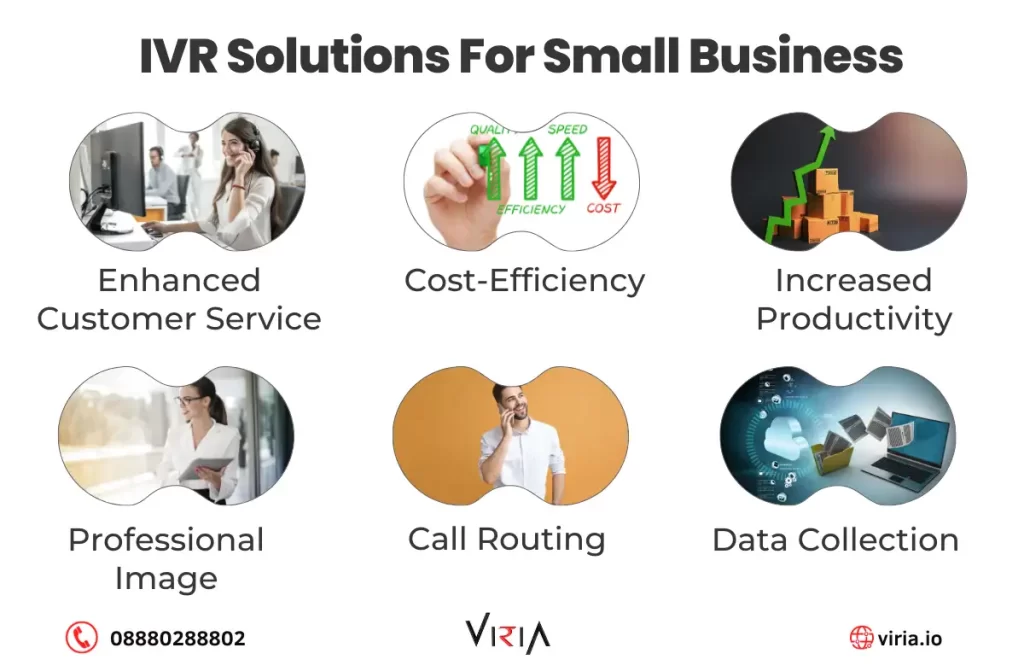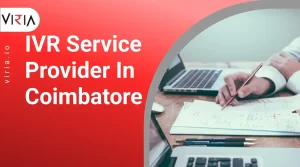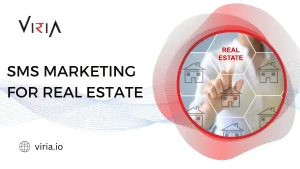In today’s fast-paced business landscape, small businesses are continually seeking ways to streamline operations, enhance customer service, and remain competitive. One technology that has proven to be a valuable asset in achieving these goals is Interactive Voice Response (IVR) solutions for small business.
IVR systems, provided by reputable IVR Call Service Provider: Empowering Business Communication in Chennai, are versatile tools that can benefit small businesses in numerous ways—from improving customer interactions to optimizing internal processes.
In this comprehensive guide, we’ll delve into the world of IVR solutions for small business, highlighting the role of IVR service providers in Chennai, and explore how it can be a game-changer for small businesses.
Understanding IVR Solutions for Small Business
Interactive Voice Response (IVR) is an automated telephone system that interacts with callers using pre-recorded voice prompts and keypad inputs.. It enables businesses, especially small businesses, to manage incoming calls efficiently, route them to the appropriate department or agent, and provide callers with relevant information or assistance without the need for human intervention.
By partnering with a reliable IVR Call Service Provider: Empowering Business Communication, businesses can Set up IVR for your Business in a way that enhances customer service while reducing operational costs
The Benefits of IVR for Small Businesses

Enhanced Customer Experience
IVR solutions for small business, facilitated by trusted IVR service provider in Chennai, can significantly improve the customer experience. Customers are quickly connected to the right department, which reduces wait times and increases satisfaction.
Additionally, IVR Customer Service allows customers to handle common queries themselves—such as checking account balances or tracking orders—without the need to speak to an agent.
Improved Efficiency
For small businesses with limited resources, IVR solutions for small business are a game-changer. A properly implemented Voice Solutions Service can handle high call volumes, freeing up staff and reducing the chance of missed calls.
24/7 Availability
IVR solutions for small business, when managed by professional IVR Call Service Provider: Empowering Business Communication companies in Chennai, are available around the clock. This 24/7 presence boosts your ability to serve customers, no matter the time or day.
Personalized Service
With IVR Customer Service, you can create dynamic experiences by greeting customers by name and tailoring responses based on previous interactions. This level of personalization helps create deeper customer relationships and loyalty
Data Collection and Analysis
IVR solutions for small business can collect valuable data about customer interactions and preferences. Small businesses can use this data to gain insights into customer behavior, identify trends, and tailor their products or services accordingly.
Cost Saving
When you Set up IVR for your Business, automation reduces the need for large customer support teams. The savings on labor can be reinvested into growth areas like marketing, development, or product improvement.
Increased Customer Satisfaction
Efficient call handling through Interactive Voice Response (IVR) systems plays a pivotal role in elevating customer satisfaction. By promptly directing callers to the right department or providing relevant information, businesses demonstrate a commitment to customer needs.
The seamless experience contributes to customer loyalty, as clients appreciate the convenience and precision in their interactions, fostering a positive perception of the business and its dedication to customer service.
How an IVR System Can Improve Your Customer Service and Support
- Streamlines communication by efficiently directing callers to the appropriate department or resource without delay.
- Ensures faster responses, reduces wait times, and minimizes frustration caused by repeated call transfers.
- Provides an intuitive IVR menu that allows even small businesses to deliver a professional and efficient customer experience.
- Offers 24/7 availability, enabling customers to access essential information anytime, even outside business hours.
- Enables self-service options for scheduling appointments and resolving common issues without needing a live agent.
- Enhances customer convenience while freeing up staff to focus on more complex issues.
- Leads to better resource utilization and higher overall customer satisfaction.
Implementing IVR Solutions for Small Business
While the benefits of IVR for small businesses are clear, implementing the right IVR system for small business, provided by reputable IVR service providers in India, is crucial. Here are some steps to consider:
- Assess Your Needs
Determine what you want to achieve. Whether it’s improving IVR Customer Service, lowering costs, or streamlining internal processes, having a clear objective will guide your IVR system design. - Select the Right Providers
Choosing the right IVR Call Service Provider: Empowering Business Communication in Chennai is critical. Look for providers with proven experience in Voice Solutions Service tailored to small business needs. - Customize Your IVR
Work with your chosen IVR service providers in Chennai to design a system that reflects your business tone. Clearly structure your menu options and make your IVR Customer Service as intuitive as possible.. - Testing and Optimization
Test your IVR thoroughly before launch. Collect user feedback and refine your system regularly to ensure optimal performance in your Voice Solutions Service. - Training and Support
Even though an IVR is automated, staff should know how to manage it and assist customers when necessary. The right IVR Call Service Provider: Empowering Business Communication can provide training and ongoing support.. - Measure Results
Track key performance indicators (KPIs) such as click to call solution completion rates, customer satisfaction, and cost savings with IVR solutions for small business provided by reputable IVR service providers in Chennai. Use these metrics to assess the impact of your IVR system for small business and make data-driven decisions for improvements.
SMS Marketing Strategies
An effective SMS marketing strategy complements your Voice Solutions Service and IVR Customer Service. Here’s how to enhance your outreach:
- Build your subscriber list by offering incentives such as exclusive discounts, free trials, or special offers..
- Leverage automation to send scheduled texts, appointment reminders, or exclusive offers.
- Integrate with other marketing channels, such as email and social media, to create a cohesive and unified campaign.
- Use SMS to drive traffic to your website, blog, or landing pages.
Conclusion
Interactive Voice Response (IVR) solutions for small business, facilitated by trusted IVR service providers in Chennai, have evolved into powerful tools for small businesses, offering benefits such as improved customer experience, increased efficiency, and cost savings.
By implementing the right IVR system for small business and customizing it to meet their unique needs, small businesses can enhance their competitiveness, better serve their customers, and pave the way for future growth.
As technology continues to advance, IVR solutions for small business, provided by reputable IVR service providers in Chennai, will remain a valuable asset for small businesses seeking to thrive in a rapidly changing business landscape.
Check out IVR in Coimbatore Businesses




